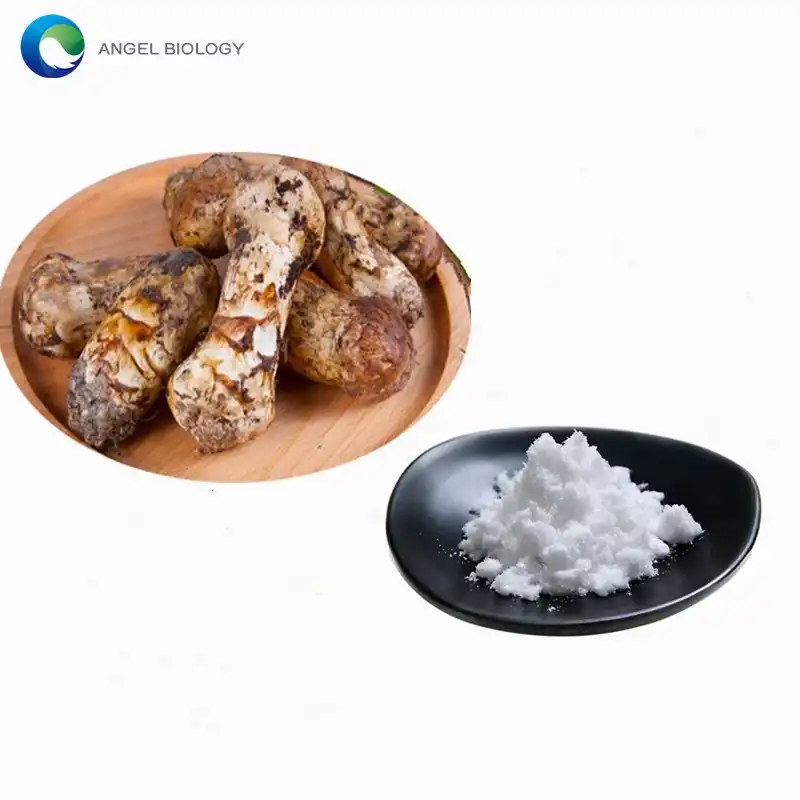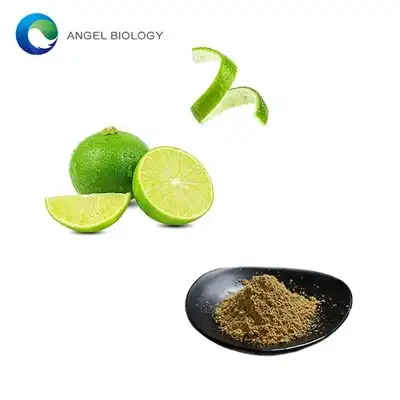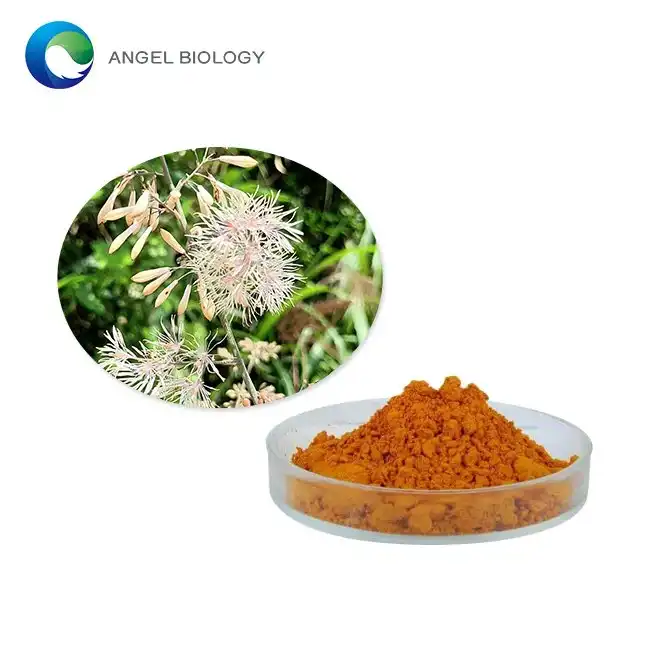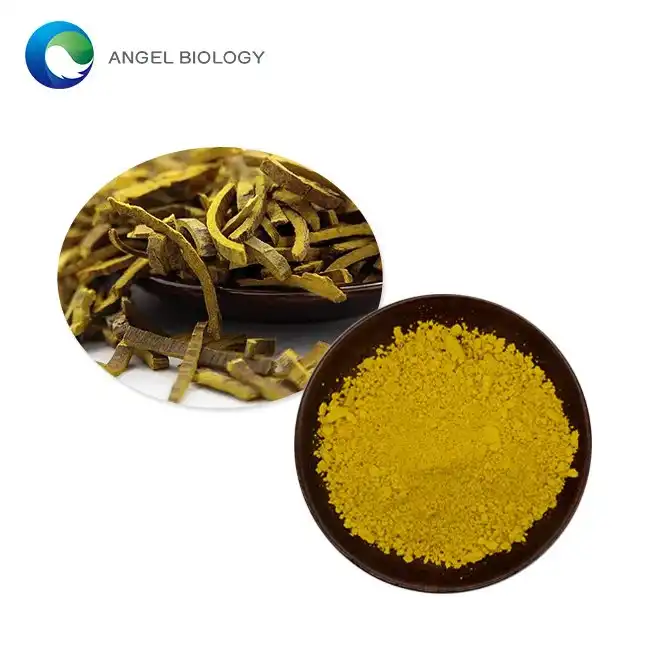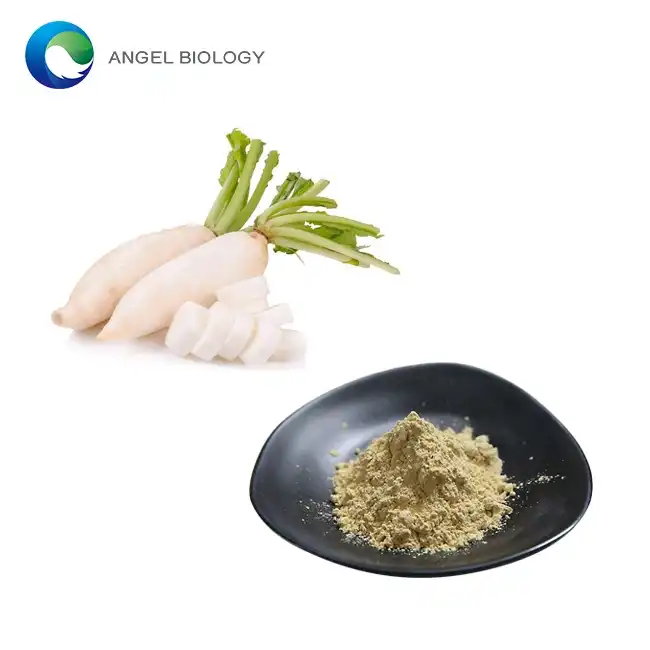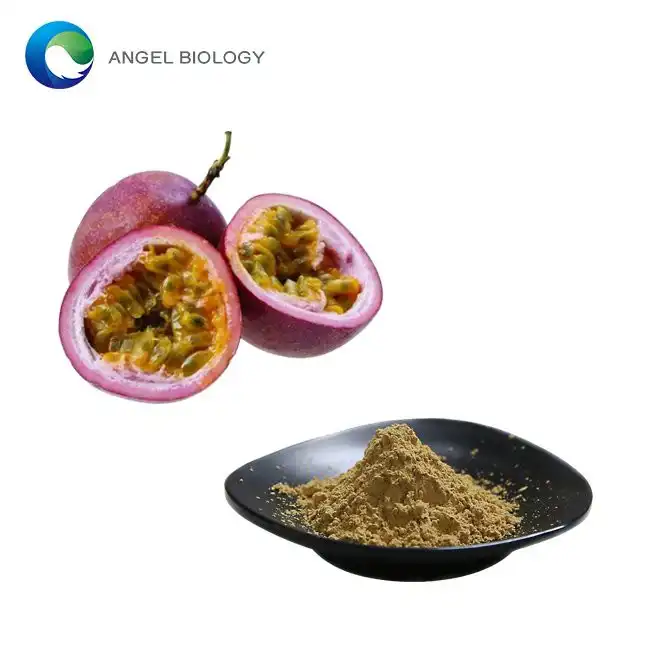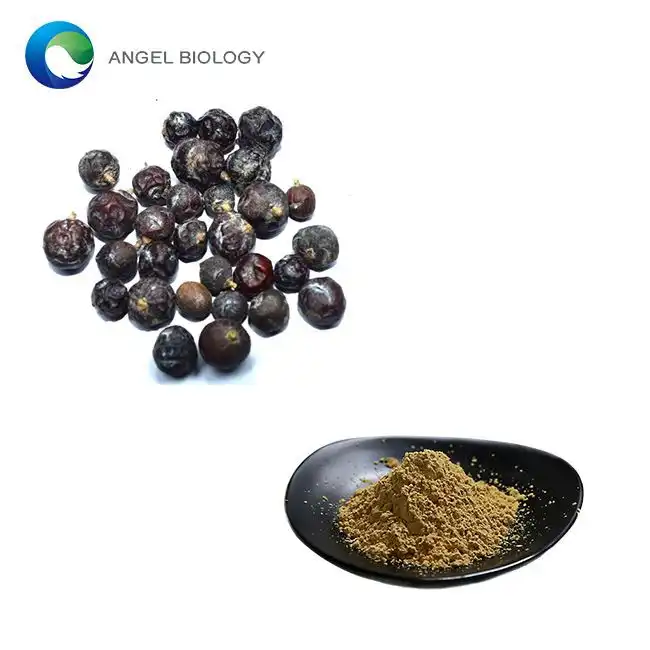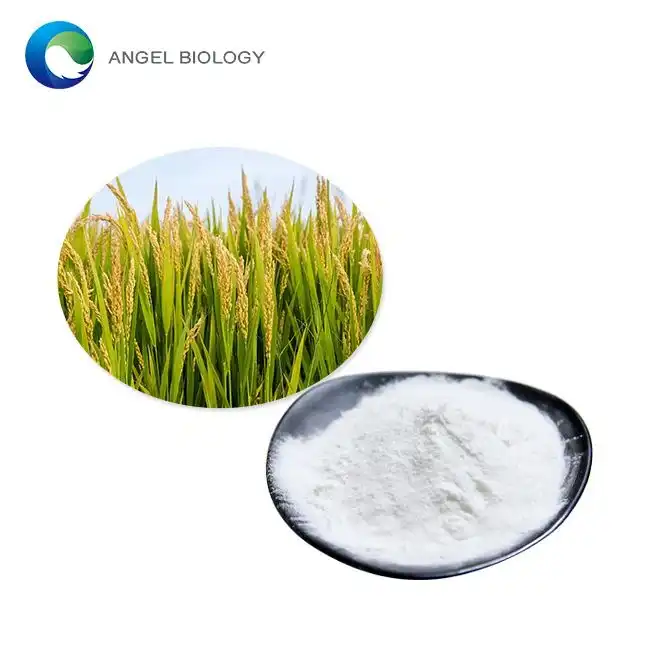CoQ10 Powder: Nature's Powerhouse for Heart Health?
In the realm of heart health supplements, CoQ10 powder has emerged as a promising contender. This naturally occurring compound, found in every cell of our body, plays a crucial role in energy production and acts as a powerful antioxidant. But what makes CoQ10 powder particularly intriguing for cardiovascular health? Let's delve into the science behind this fascinating substance and explore its potential benefits for your heart.
Can CoQ10 Powder Support Cardiovascular Function and Blood Pressure?
The heart, being an organ that never rests, requires a constant supply of energy to function optimally. This is where CoQ10 comes into play. As a key component in the electron transport chain within mitochondria, CoQ10 facilitates the production of adenosine triphosphate (ATP), the primary energy currency of cells.
Research suggests that CoQ10 supplementation may have beneficial effects on cardiovascular health. A meta-analysis published in the Journal of Human Hypertension found that CoQ10 supplementation could potentially reduce systolic blood pressure by up to 17 mm Hg and diastolic blood pressure by up to 10 mm Hg. These findings are particularly significant for individuals with hypertension, a major risk factor for heart disease.
CoQ10 supplementation could potentially reduce systolic blood pressure by up to 17 mm Hg and diastolic blood pressure by up to 10 mm Hg. These findings are particularly significant for individuals with hypertension, a major risk factor for heart disease.
Moreover, CoQ10's antioxidant properties may help protect the heart from oxidative stress. Free radicals, which are unstable molecules that can damage cellular structures, are implicated in the development of various cardiovascular diseases. By neutralizing these harmful compounds, CoQ10 may help maintain the integrity of blood vessels and improve overall heart health.
It's worth noting that while these results are promising, more extensive research is needed to fully understand the mechanisms by which CoQ10 affects cardiovascular function and blood pressure. As with any supplement, it's crucial to consult with a healthcare professional before incorporating CoQ10 powder into your wellness routine.
The Role of Coenzyme Q10 in Energy Production for Heart Cells
The heart is an exceptionally energy-demanding organ, requiring a constant supply of ATP to maintain its rhythmic contractions. CoQ10, also known as ubiquinone, plays a pivotal role in this energy production process within the mitochondria of heart cells.
In the electron transport chain, CoQ10 acts as an electron carrier, facilitating the transfer of electrons between complex I and complex III. This transfer is essential for the generation of a proton gradient across the inner mitochondrial membrane, which ultimately drives ATP synthesis through oxidative phosphorylation.
Interestingly, the heart has one of the highest concentrations of CoQ10 in the body, underscoring its importance in cardiac function. As we age, however, our natural CoQ10 levels tend to decline. This reduction can be particularly problematic for individuals with heart conditions, as their cardiac cells may already be under increased stress.
CoQ10 powder supplementation may help bridge this gap, providing the heart with the necessary "fuel" to maintain optimal function. A study published in the European Heart Journal found that CoQ10 supplementation improved left ventricular ejection fraction and reduced major adverse cardiovascular events in patients with chronic heart failure.
Furthermore, CoQ10's role in energy production extends beyond the heart. By enhancing mitochondrial function throughout the body, CoQ10 may contribute to overall energy levels and vitality. This systemic effect could indirectly benefit heart health by promoting physical activity and reducing fatigue, both of which are important factors in cardiovascular wellness.
Studies on CoQ10 Supplementation and Improved Cardiac Output
The potential of CoQ10 to improve cardiac output has been the subject of numerous scientific investigations. Cardiac output, which refers to the amount of blood the heart pumps in a minute, is a crucial measure of heart function. Improved cardiac output can lead to better overall cardiovascular health and enhanced quality of life for individuals with heart conditions.
One landmark study, known as the Q-SYMBIO trial, examined the effects of CoQ10 supplementation in patients with chronic heart failure. The results, published in JACC: Heart Failure, were quite remarkable. Patients who received CoQ10 supplementation experienced a significant reduction in major adverse cardiovascular events and all-cause mortality compared to the placebo group. Moreover, these patients reported improvements in symptoms and functional capacity.
Another study, published in the Journal of Cardiac Failure, focused on the effects of CoQ10 powder on exercise capacity in chronic heart failure patients. The researchers found that CoQ10 supplementation led to a significant improvement in peak oxygen consumption and exercise duration. These findings suggest that CoQ10 may enhance the heart's ability to pump blood efficiently during physical exertion, potentially improving overall cardiovascular fitness.
It's important to note that while these studies show promising results, the effects of CoQ10 supplementation can vary depending on factors such as dosage, duration of supplementation, and individual health status. Some studies have shown more modest or mixed results, highlighting the need for further research in this area.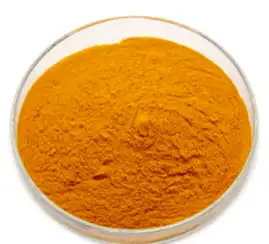
Interestingly, CoQ10 may also have synergistic effects when combined with other heart-healthy nutrients. For instance, a study published in the European Journal of Heart Failure found that a combination of CoQ10 and selenium significantly reduced cardiovascular mortality in elderly individuals compared to placebo. This suggests that CoQ10 might be most effective as part of a comprehensive approach to heart health, rather than as a standalone supplement.
While the evidence supporting CoQ10's benefits for cardiac output is growing, it's crucial to approach these findings with a balanced perspective. CoQ10 supplementation should not be viewed as a replacement for conventional medical treatments or a healthy lifestyle. Instead, it may serve as a complementary strategy to support overall heart health when used under the guidance of a healthcare professional.
Conclusion
The potential of CoQ10 powder to support heart health is indeed intriguing. From its role in energy production to its antioxidant properties and potential to improve cardiac output, CoQ10 offers a multifaceted approach to cardiovascular wellness. While more research is needed to fully understand its mechanisms and optimal use, the existing evidence suggests that CoQ10 supplementation may be a valuable addition to heart health strategies for many individuals.
If you're considering incorporating CoQ10 powder into your health regimen, it's crucial to consult with a healthcare professional who can provide personalized advice based on your individual health needs and circumstances. Remember, supplements like CoQ10 are most effective when used as part of a comprehensive approach to heart health that includes a balanced diet, regular exercise, and other lifestyle factors.
At Angelbio, we're committed to providing high-quality, natural ingredients that support overall health and well-being. Our CoQ10 powder is carefully sourced and manufactured to meet the highest standards of quality and purity. Whether you're looking to support your heart health, boost your energy levels, or enhance your overall wellness, we're here to help you make informed choices about your health.
Interested in learning more about our CoQ10 powder or other natural health solutions? We'd love to hear from you! Reach out to us at angel@angelbiology.com for more information or to discuss how our products can support your health journey. Together, let's take a step towards a healthier, more vibrant you!
References
1. Mortensen, S. A., et al. (2014). The effect of coenzyme Q10 on morbidity and mortality in chronic heart failure: Results from Q-SYMBIO: A randomized double-blind trial. JACC: Heart Failure, 2(6), 641-649.
2. Rosenfeldt, F. L., et al. (2007). Coenzyme Q10 in the treatment of hypertension: A meta-analysis of the clinical trials. Journal of Human Hypertension, 21(4), 297-306.
3. Alehagen, U., et al. (2013). Cardiovascular mortality and N-terminal-proBNP reduced after combined selenium and coenzyme Q10 supplementation: A 5-year prospective randomized double-blind placebo-controlled trial among elderly Swedish citizens. International Journal of Cardiology, 167(5), 1860-1866.
4. Belardinelli, R., et al. (2006). Coenzyme Q10 and exercise training in chronic heart failure. European Heart Journal, 27(22), 2675-2681.



